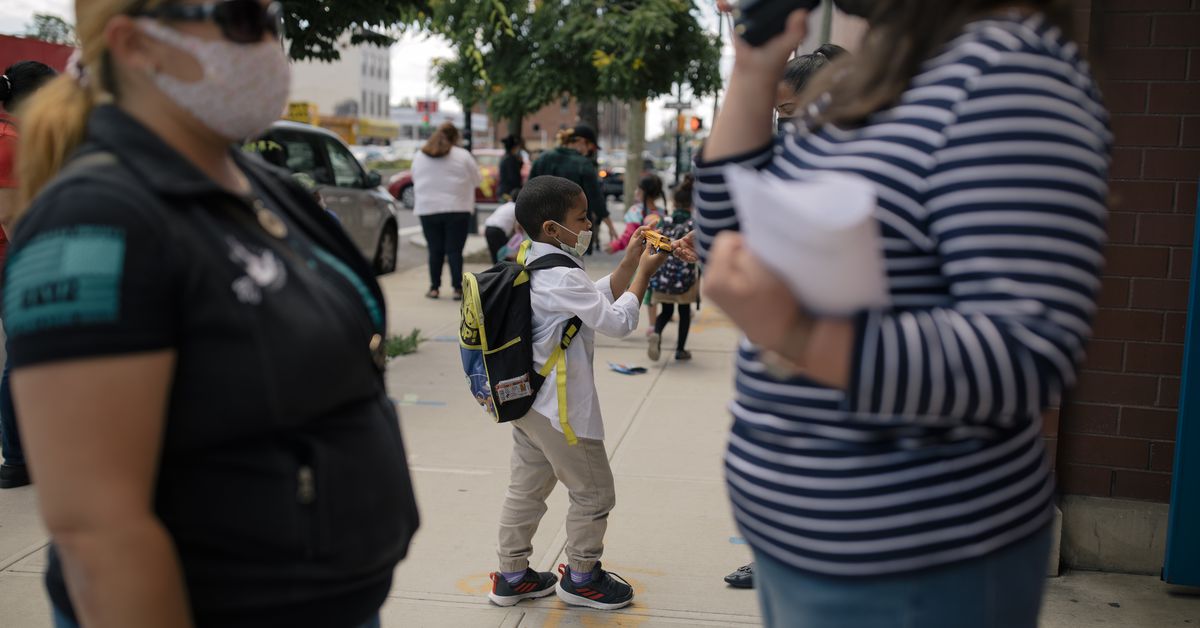State officials reporting ‘completely unacceptable’ STAAR online testing issues
Texas Education Agency officials Tuesday reported “completely unacceptable” technical issues with the state’s standardized testing online platform, putting even greater scrutiny on legislators’ push to make nearly all students take the exams on computers in the coming years.
In a statement, TEA leaders said their testing vendor, Educational Testing Services, “experienced problems with their database system,” causing log-in and test administration snags on the first day of the state’s primary testing season.
The glitch prompted state Rep. Dan Huberty (R-Kingwood) who authored a bill last legislative session moving Texas toward a significant expansion of online standardized testing by 2022-23, to declare that “it’s clear we’re going to need more time to do this.”
TEA officials said they were still analyzing how many students were impacted. Fourth- and seventh-grade students were set for State of Texas Assessments of Academic Readiness writing exams Tuesday, while some high school students were scheduled for English I end-of-course tests.
About 13 percent of Texas public school students took STAAR online in –19, the most recent year with available data, while the rest used paper exams.
“All involved in public education in Texas should expect better than what they have experienced today,” TEA administrators said in a statement. “We are working to ensure that our students do not experience future testing issues.”
Educational Testing Services officials did not respond to a request for comment Tuesday.
Administrators in two of the state’s largest districts, Houston and Conroe ISDs, reported that some — but not all — online test-takers experienced technical issues. Houston ISD Interim Chief Academic Officer Yolanda Rodriguez said district leaders were still gauging the extent of the malfunction.
“We had some campuses where many of the online testers were affected, and then we had some where they weren’t affected at all or the system just slowed down on them,” Rodriguez said.
Conroe officials said about 15,000 of the district’s 64,800 students were scheduled to take STAAR exams Tuesday. Of those, about 1,600 were registered for online tests, with an unknown number tripped up by glitches.
“Although this issue was outside of Conroe ISD’s control, we echo the sentiments shared by TEA and understand the frustration this has caused students, parents, teachers, and administrators.” Conroe officials wrote in a message to families.
TEA officials said districts can plan to resume online testing Wednesday.
The problems arose Tuesday amid two major shifts in Texas’ approach to high-stakes tests, which are used to issue state accountability ratings and contribute to student promotion and graduation decisions.
TEA officials will officially replace Educational Testing Services as the state’s STAAR administration vendor later this year with Cambium Assessment. Educational Testing Services holds a six-year contract worth up to $440 million that expires in August. Cambian Assement’s four-year contract runs through 2024 with a maximum payout of $262 million.
At the same time, state legislators are moving toward having nearly all students participate online in STAAR by 2022-23, citing the potential for faster results and more interactive tests, among other benefits.
In a study published in January examining the feasibility of transitioning to online STAAR administration, TEA and Texas A&M University officials reported the state was “relatively close” to having the tools to dramatically expand web-based testing by 2022-23.
Still, concerns remain about potential pitfalls of moving exams online.
Educational Testing Services experienced numerous technical issues in 2016, prompting TEA officials to seek $5.7 million in damages and ask the company for another $15 million in upgrades, and two separate glitches slowed down online test administration in 2018. The issues combined to impact about 85,000 students taking exams.
The study’s authors thought they had moved past the glitches, citing the fines and infrastructure investments by Educational Testing Services. However, Huberty said Tuesday that more changes are needed before a broader online testing shift is done.
“It’s clear to me we have some work to do,” Huberty said during a House Public Education Committee hearing. “I want to give TEA the time to be able to do that.”
Federal and state officials have pushed forward with annual standardized testing this year despite calls to cancel exams amid the coronavirus pandemic.
Testing supporters say the results will provide vital data about students’ academic gains, which are expected to slip compared to previous years due to the impact of COVID-19. Opponents argue that the results will not be reliable, particularly given that many students are opting out of the tests. They also say exam time could be better spent on instruction.
Texas students in grades 3 through 8 will not suffer any consequences if they stay home and do not take the exams. High school students still must pass end-of-course exams before graduating, though seniors who have not yet passed the tests can still receive a diploma following a review by an individual graduation committee.
Texas education leaders also agreed to nix state-issued accountability ratings for districts and schools this year.
The state’s next regular STAAR and end-of-course exam date is set for Thursday, when some high school students are scheduled to take English II tests. The exams are expected to be given throughout April, May and June.
Shelby Webb contributed to this report.








